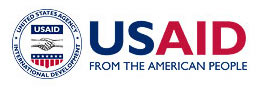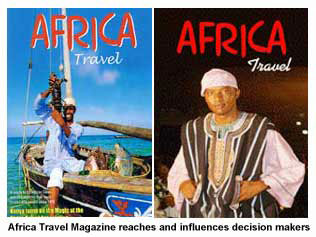Sustainable tourism and community benefits from tourism are some of key issues that will attract participants who will be attending the forthcoming International Institute for Peace through Tourism (IIPT) Symposium to be held in Johannesburg, South Africa, mid this month.
Tanzania, like other African countries, is counted as a rich nation with diversified tourist attractions scattered all over its boundaries. But any tourist visiting this country would be compelled to help the poor desperate children walking alongside the roads which lead to key tourist sites in northern Tanzania.
These poor children are all over, seen begging for water to drink and money to buy pencils and exercise books. Rich in tourism, Tanzania remain a poor country where basic needs including water, health and education services are inadequate to meet requirements of the people, despite these golden tourist opportunities available in this African safari destination.
Ladies Trekkers is a newly-established philanthropic and humanitarian charity that is aimed to support children from poor families living on slopes of Mount Kilimanjaro. Launched by a lady philanthropist, Janika Vaikjarv, Ladies Trekking Club and Impatiens Kilimanjari Foundation is a non-profit organization or a charity geared to support the poor children through donations
from Mount Kilimanjaro climbers and travel book sales. Members of this charity had as well, compiled a book titled “Dreamers and Doers”, and whose selling proceedings were donated to the poor children in northern Tanzania. The members had so far, donated textbooks and paid school fees to the children, mostly girls from the pastoralist Maasai communities.
The school textbook project which Ladies Trekking club operates, on the other hand, is targeted at very poor schools, both for boys and girls, where there are 100 kids in one classroom with one teacher and only one textbook to share. “If we stressed today that all the girls have right to education then it would raise the question whether the school textbooks will go only
to little girls while little boys are left empty handed. This is actually not true”, said Janika in her book, Dreamers and Doers. “In addition, the issue of education is not just something the less developed countries deal with. Each country has its own problems. Education cannot be refused to anyone – if a person 60 or more years old still wishes to study and feel useful in society then he or she
should have an opportunity”, she added. On March 1st this year, the Ladies Trekkers Club members, mostly women from all corners of the world will convene at the foothills of Mount Kilimanjaro in their mission to conquer this highest point in Africa, while carrying a flag bearing a message of “Everyone has the right to education”, and the names of 10,113 women who reached the
peak of the Mountain in the morning of March 8th last year. Ladies Trekkers Club members believe that everyone in the world has the right to education, and behind every name there is a woman. They have jointly sent a flag in different countries across the world, bearing messages that would attract good support to the poor children of Africa.
The Club had joined hands with a Tanzanian tour company, Zara Tours in organizing Mount Kilimanjaro charity climbing expeditions. They together raised funds for Maasai girls to meet schooling requirements including tuition fees, boarding and medical, Incidental allowance, transport and uniform expenses. Surrounded by poor Maasai pastoral communities in its western
corridor, Mount Kilimanjaro is the leading tourist attractive site in Tanzania and which generate most tourist incomes for the government of Tanzania.




 This
is the third year the U.S. Office of Personnel
Management (OPM) has conducted the survey, which
includes responses from 36 federal government
agencies. The latest results differ from the two
earlier surveys - in 2002 and 2004 - because this
survey is the first where OPM released
agency-by-agency rankings, which are aimed at
helping government workplaces better gauge their
progress and standing in managing
employees.
This
is the third year the U.S. Office of Personnel
Management (OPM) has conducted the survey, which
includes responses from 36 federal government
agencies. The latest results differ from the two
earlier surveys - in 2002 and 2004 - because this
survey is the first where OPM released
agency-by-agency rankings, which are aimed at
helping government workplaces better gauge their
progress and standing in managing
employees.